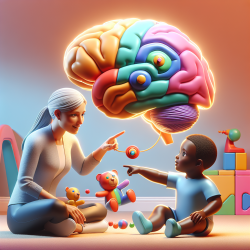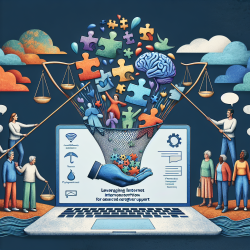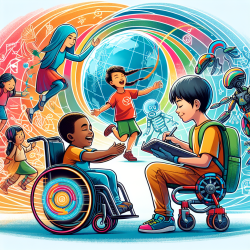Understanding the Dynamics of Child, Parent, and Play
In the realm of speech-language pathology, the intricate interplay between children, their parents, and the types of play they engage in is pivotal to understanding language development. A recent study titled "Child, Parent, and Play – An Insight into These Dimensions Among Children with and without Receptive Expressive Language Disorder Using Video-Based Analysis" offers valuable insights that can enhance the practice of clinicians working with children who have Receptive Expressive Language Disorder (RELD).
Key Findings from the Research
The study conducted a video-based analysis of parent-child interactions among children with RELD and typically developing children. The findings revealed significant differences in pre-linguistic skills, communication stages, parental roles, and play behaviors.
- Pre-Linguistic Skills: Children with RELD exhibited fewer verbal turns and more gestural turns compared to their typically developing peers. They also maintained longer eye contact with objects rather than people, indicating a developmental delay in joint attention skills.
- Parental Roles: Parents of children with RELD were often in a "Helper" or "Cheerleader" role, while parents of typically developing children exhibited a "Partner" role, fostering more balanced communication.
- Communication Stages: Children with RELD were primarily in the "Requester" or "Early Communicator" stages, whereas typically developing children were in the "Partner" stage, showcasing more advanced communication skills.
- Play Behaviors: Children with RELD engaged more in exploratory play, while typically developing children participated in functional, constructive, and symbolic play, which are crucial for cognitive and language development.
Implications for Practitioners
These findings underscore the importance of tailoring interventions to address the specific needs of children with RELD. Practitioners should consider the following strategies:
- Encourage parents to adopt a "Partner" role by providing them with strategies to engage in balanced communication with their children.
- Focus on enhancing joint attention skills by incorporating activities that promote eye contact with people rather than objects.
- Facilitate the transition from exploratory to symbolic play through structured play interventions that encourage imagination and creativity.
- Use video-based analysis as a tool to assess and monitor progress in pre-linguistic skills and play behaviors.
By understanding and implementing these insights, practitioners can create more effective therapy plans that lead to improved language outcomes for children with RELD.
To read the original research paper, please follow this link: Child, Parent, and Play – An Insight into These Dimensions Among Children with and without Receptive Expressive Language Disorder Using Video-Based Analysis.










